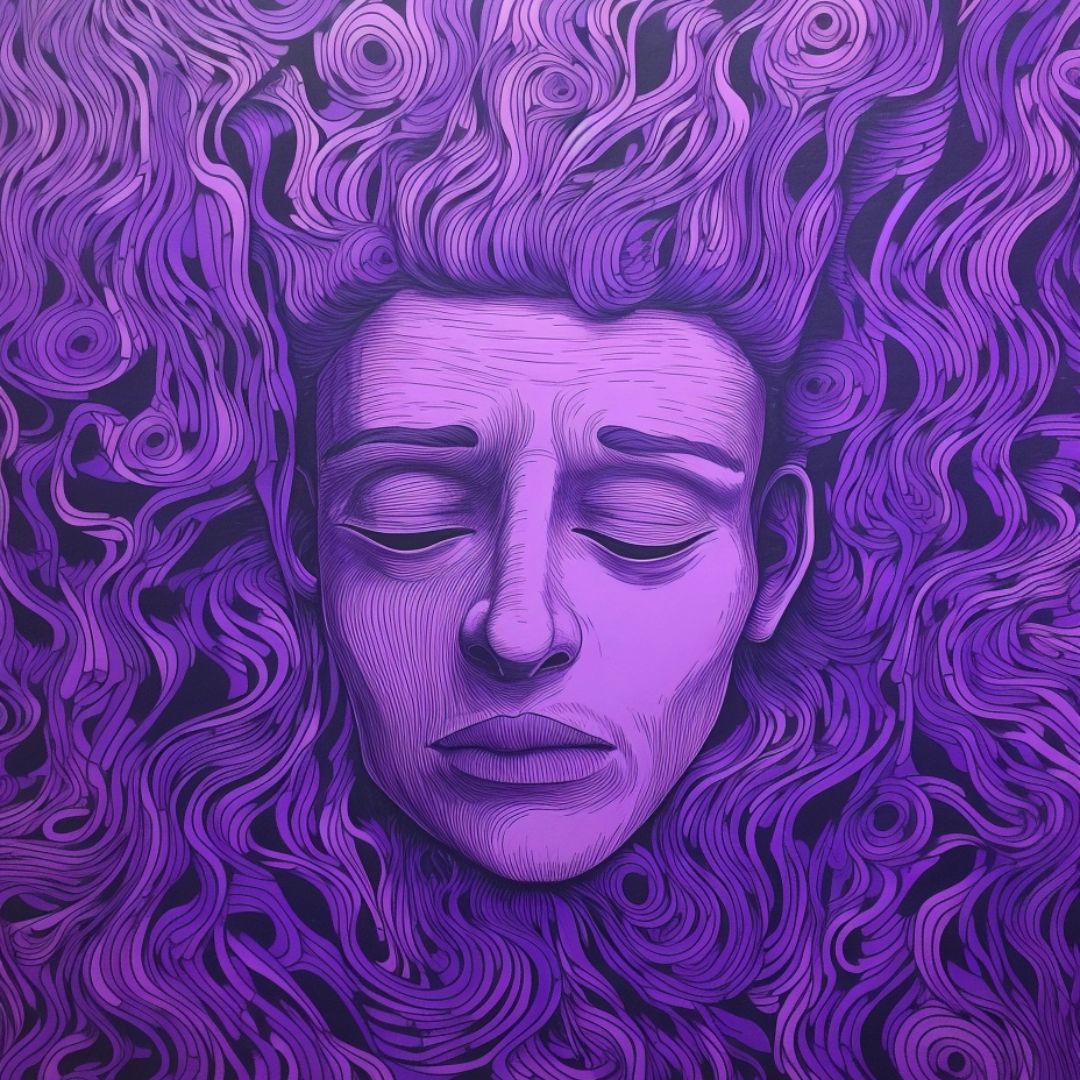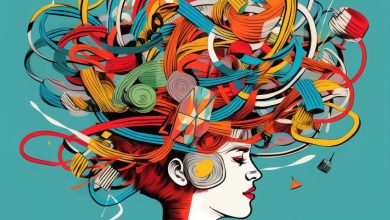ENTP and Depression: A Hidden Struggle

Are you an ENTP personality type who has struggled with depression? You’re not alone. While ENTPs are known for their creativity, intelligence, and quick thinking, they also have a tendency to experience depression due to their complex and often misunderstood nature.
This article will explore ENTP and depression challenges, offering insights into how ENTPs can navigate and manage their mental health.
ENTP Personality
ENTP stands for Extraverted, Intuitive, Thinking, and Perceiving, which is one of the sixteen personality types identified by the Myers-Briggs Type Indicator (MBTI). People with the ENTP personality type are often described as innovative, curious, and adaptable individuals who enjoy exploring new ideas and possibilities.
Here are some key traits commonly associated with ENTPs:
- Extroverted: ENTPs are generally outgoing and enjoy interacting with others. They tend to be energized by socializing and often have a charismatic and persuasive communication style.
- Intuitive: They are big-picture thinkers who focus on possibilities, patterns, and connections rather than dwelling on specifics. ENTPs are imaginative and future-oriented.
- Thinking: ENTPs make decisions based on logic and objective reasoning rather than emotions. They enjoy analyzing complex problems and finding creative solutions.
- Perceiving: This trait reflects a preference for flexibility and spontaneity. ENTPs are adaptable and open-minded, often thriving in situations that allow for exploration and variation.
- Innovative: They are highly innovative and creative, frequently generating new ideas and concepts. ENTPs enjoy challenging the status quo and exploring unconventional solutions.
- Debaters: ENTPs are known for their love of debate and intellectual discussions. They often enjoy engaging in lively conversations, presenting arguments, and playing devil’s advocate to explore different perspectives.
- Energetic and Enthusiastic: They bring enthusiasm and energy to their pursuits, especially when they are passionate about a particular idea or project.
- Unconventional: ENTPs often defy traditional norms and may prefer to approach situations in their unique way. They enjoy thinking outside the box and are comfortable with non-conformity.
| Discover: MBTI Types and Depression | Who Struggles Most?
What Does a Depressed ENTP Look Like?

When an ENTP experiences depression, their behavior and demeanor may exhibit several changes compared to their usual energetic and enthusiastic self. However, it’s important to note that depression can manifest differently in each individual and isn’t solely defined by personality type. Here’s how depression affect an ENTP:
- Withdrawal: A depressed ENTP might withdraw from social interactions and activities they typically enjoy. They may isolate themselves and become less engaged in conversations or debates, exhibiting a decreased interest in exploring new ideas.
- Lack of Enthusiasm: They may lose their usual enthusiasm and energy for brainstorming, innovation, or creative endeavors. Their normally vibrant and lively personality might become subdued or absent.
- Negative Thinking: Depression often involves persistent negative thoughts. An ENTP experiencing depression might display increased pessimism or cynicism, focusing on potential flaws rather than possibilities and solutions.
- Reduced Risk-Taking: ENTPs are known for their willingness to take risks and explore unconventional ideas. However, when experiencing depression, they might become more cautious and hesitant, fearing failure or rejection more than usual.
- Difficulty Concentrating: ENTPs usually have an agile and curious mind, but depression can lead to difficulties in concentrating or maintaining focus. They might find it challenging to generate new ideas or engage in their usual mental explorations.
- Impact on Relationships: Depression can strain relationships. An ENTP experiencing depression might struggle to maintain their usual level of engagement and enthusiasm in relationships, leading to misunderstandings or conflicts with others.
- Indecisiveness: While ENTPs typically enjoy exploring various options and making decisions based on logic, depression can lead to indecisiveness or a sense of feeling stuck in their thoughts.
- Self-Criticism: They might become overly self-critical and doubt their abilities, leading to a decrease in confidence and self-esteem. This could impact their willingness to engage in debates or present their ideas.
- Physical Symptoms: Depression can also manifest in physical symptoms such as changes in appetite, disrupted sleep patterns, fatigue, or general aches and pains.
ENTP Depression: Which Traits are Triggers?
While the ENTP personality type possesses various strengths and positive traits, certain aspects of their nature and behavior might contribute to or exacerbate feelings of depression. Here are some traits of ENTPs that, under certain circumstances, could potentially contribute to depression:
- Overthinking: ENTPs tend to analyze situations thoroughly and explore multiple possibilities. However, excessive rumination or overthinking, especially in negative contexts, can lead to increased stress and feelings of being overwhelmed, contributing to depression.
- Perfectionism: ENTPs might set high standards for themselves and others, striving for perfection in their ideas or projects. When they feel they’ve fallen short of their expectations, it can lead to feelings of disappointment and self-criticism, potentially triggering or worsening depression.
- Idealism and Disappointment: ENTPs often have high ideals and may become disillusioned when reality doesn’t align with their visionary ideas. Persistent disappointment or feeling unable to achieve their aspirations could contribute to feelings of hopelessness or despair.
- Social Expectations: While ENTPs generally enjoy social interactions, they might struggle with maintaining deep connections or feeling understood due to their preference for intellectual discussions. This could lead to feelings of loneliness or isolation, which can contribute to depression.
- Avoidance of Emotional Depth: ENTPs may have a tendency to avoid or downplay their emotions, preferring logical reasoning over emotional expression. Suppressing emotions and not addressing underlying feelings could contribute to depressive symptoms.
- Lack of Intellectual Stimulation: ENTPs thrive on mental stimulation and novel ideas. A lack of intellectual challenges or engaging activities might lead to feelings of boredom or dissatisfaction, which, if prolonged, could contribute to depression.
- Difficulty Handling Routine: ENTPs prefer variety and innovation, so they might struggle with routine tasks or situations that lack excitement. Feeling stuck in mundane activities without opportunities for exploration or creativity might lead to feelings of frustration or discontentment.
| Read more: Depression and Motivation | Coping Strategies for Lack of Motivation
ENTP and Depression: How to Cope

Dealing with depression can be challenging, but there are several strategies that an ENTP when depressed can use to cope and seek support:
- Develop a Support Network: Connecting with friends, family, or support groups can provide emotional support and understanding. ENTPs might benefit from discussing their thoughts and feelings with trusted individuals who can offer empathy and encouragement.
- Practice Self-Care: Engaging in self-care activities such as regular exercise, maintaining a healthy diet, getting adequate sleep, and practicing relaxation techniques like mindfulness or meditation can help alleviate symptoms of depression. (For more insights, read Top 10 Self-Care Practices for Depression)
- Set Realistic Goals: Breaking tasks into smaller, manageable goals can prevent feeling overwhelmed. ENTPs might benefit from focusing on specific, achievable objectives to regain a sense of accomplishment and control.
- Express Emotions: While ENTPs may lean towards logic and rationality, allowing themselves to acknowledge and express emotions is crucial. Engaging in creative outlets, journaling, or talking with someone trustworthy about emotions can be beneficial.
- Challenge Negative Thoughts: Cognitive-behavioral techniques can help in challenging negative thought patterns. Identifying and disputing irrational or negative beliefs can aid in changing perspective and reducing depressive symptoms.
- Maintain Structure: Establishing a routine and sticking to it can provide a sense of stability and purpose. Incorporating activities that bring enjoyment or fulfillment, even when feeling low, can be helpful.
- Explore New Interests: ENTPs thrive on novelty and learning. Engaging in new hobbies or activities can stimulate the mind and bring a sense of excitement, potentially alleviating depressive symptoms.
Suggestion: Depression and Nutrition | Depression Diet
ENTP Depression and Treatment Options
The best professional treatment options for ENTP in depression, like anyone else experiencing depression, typically involve a combination of therapies tailored to their individual needs. Here are some effective professional treatment options:
- Psychotherapy/Counseling: Cognitive-behavioral therapy (CBT), dialectical behavior therapy (DBT), or other forms of talk therapy can be highly beneficial. These therapies help individuals recognize and change negative thought patterns and behaviors associated with depression.
- Psychiatric Evaluation and Management: A comprehensive psychiatric evaluation can help determine the most suitable treatment plan, including medication management if necessary.
- Mindfulness-Based Therapies: Mindfulness practices, such as mindfulness-based cognitive therapy (MBCT) or mindfulness meditation, can help individuals develop awareness of their thoughts and emotions, reducing symptoms of depression.
- Holistic Approaches: Some ENTPs might benefit from holistic approaches such as yoga, acupuncture, or massage therapy, which can complement traditional treatments and promote overall well-being.
Learn more…
HealWiser’s Last Piece of Advice
It’s essential for an ENTP being depressed to work closely with mental health professionals to develop a personalized treatment plan that addresses their specific symptoms, preferences, and needs.
Depression is a complex mental health issue influenced by various factors, including genetics, life experiences, and brain chemistry. Seeking professional support and guidance is crucial for anyone experiencing depression or related symptoms, regardless of personality type.
Sharing your experiences can provide valuable insights and emotional support. So…
…share your experience with Heal Wiser and others in the comments section below this post.






